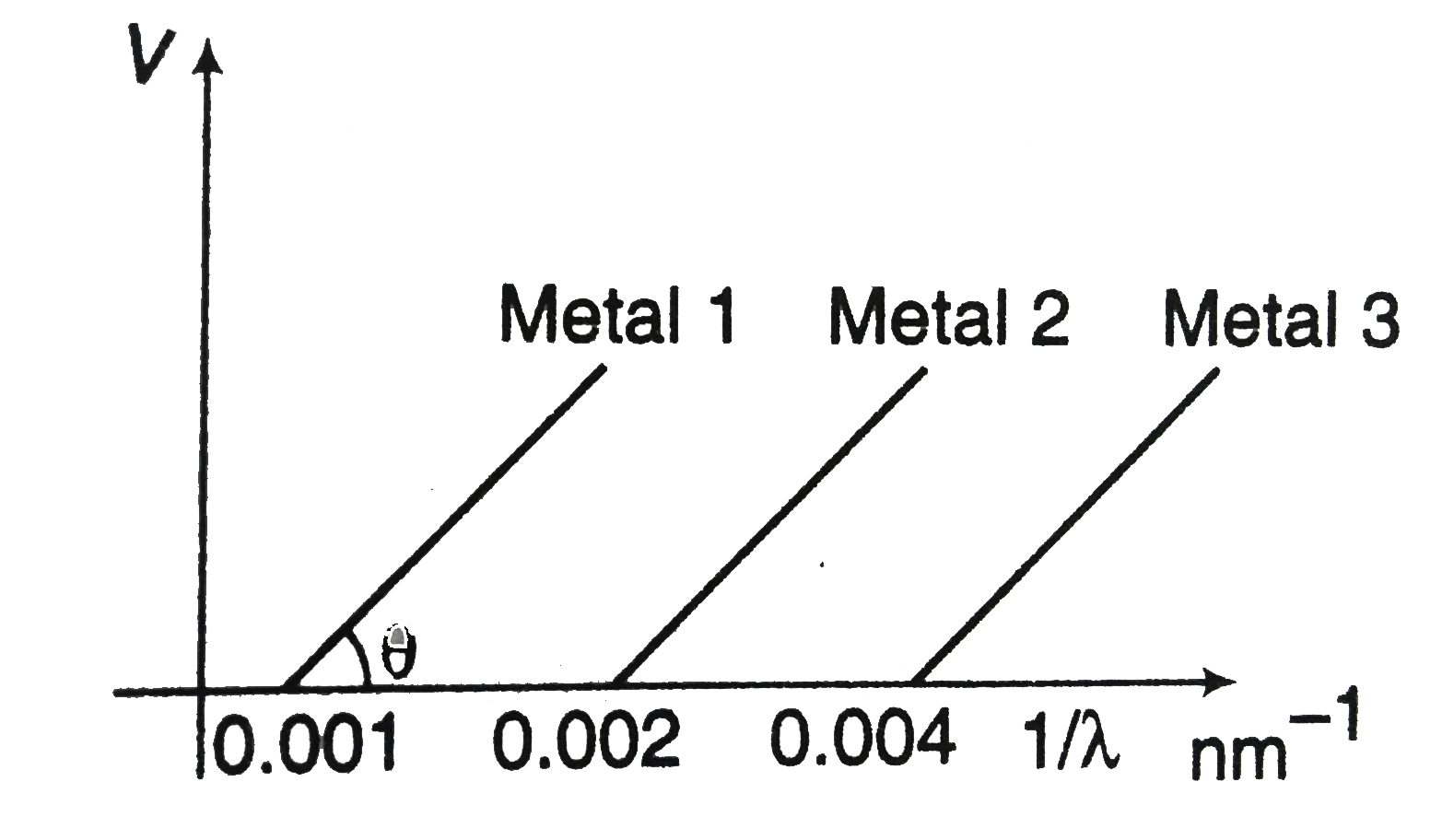Complete Solutions to Example Type 4 of chapter MODERN PHYSICS - 1 of Class 12 book with complete answers and questions
| Class 12 | PHYSICS |
| Chapter | MODERN PHYSICS - 1 |
| DC PANDEY | Example Type 4 |
| Number Of Questions | 3 |
| Academic Year | 2023-24 |
A monochromatic light soure of frequency f illuminates a metallic surface and ejects photoelectrons. The photoelectrons having maximum energy are just able to ionize the hydrogen atoms in ground state. When the whole experiment is repeated with an incident radiation of frequency `(5)/(6) f`, the photoelectrons so emitted are able to excite the hydrogen atom beam which then emits a radiation of wavelength `1215 Å`. (a) What is the frequency of radiation? (b) Find the work- function of the metal.
View SolutionThe graph between `1//lambda` and stopping potential (V) of three metals having work- functions `Phi_1`, `Phi_2` and `Phi_3` in an experiment of photoelectric effect is plotted as shown in the figure. Which of the following statement(s) is/are correct? (Here, `lambda` is the wavelength of the incident ray). (a) Ratio of work functions `phi_1 : phi_2 : phi_3 = 1 : 2 : 4` (b) Ratio of work functions `phi_1 : phi_2 : phi_3 = 4 : 2 : 1` (c ) tan `theta` is directly proportional to hc / e, where h is Planck constant and c is the speed of light (d) The violet colour light can eject photoelectrons from metals 2 and 3 .

View SolutionA beam of light has three wavelengths `4144 Å`, and `6216 Å` with a total instensity of `3.6 xx 10^(-3) Wm^(-2)` equally distributed amongst the three wavelengths. The beam falls normally on an area `1.0 cm^2` of a clean metallic surface of work function 2.3 eV. Assume that there is no loss of light by reflection number of photoelectrons liberated in two seconds.
View Solution
Example Type 4 questions and complete solutions for chapter MODERN PHYSICS - 1 of DC PANDEY PHYSICS (HINGLISH) of Class 12
All Exercises from DC PANDEY Class 12 PHYSICS MODERN PHYSICS - 1
- Example
- Example Type 1
- Example Type 2
- Example Type 3
- Example Type 4
- Exercise 33.1
- Exercise 33.2
- Exercise 33.3
- Exercise 33.4
- Level -1 Assertion And Reason
- Level 1 Objective
- Level 1 Subjective
- Level 2 Comprehension Based
- Level 2 More Than One Correct
- Level 2 Passage 3
- Level 2 Passage 4
- Level 2 Single Correct
- Level 2 Subjective
- Level 2Passage 2
- Miscellaneous Examples